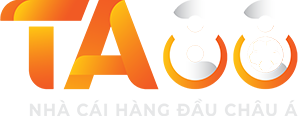In today’s rapidly advancing instructional landscape, the demand for reliable, detailed, and available sources of info is greater than ever before. Homework Encyclopedias have actually emerged as indispensable devices for trainees worldwide, offering a wide range of understanding at their fingertips. This article delves into the importance of Research Encyclopedias, their evolution for many years, and their function in supporting scholastic success.

As typical education techniques adjust to digital technologies, learning sources like Homework Encyclopedias continue to serve as keystones of trainee discovering, providing structured and curated content. Comprehending their worth and effect can assist trainees leverage these sources successfully in their educational trip.
The Evolution of Research Encyclopedias
The concept of encyclopedias dates back to ancient civilizations, where understanding was carefully documented and maintained. From the scrolls of the Library of Alexandria to the published volumes of the Renaissance, encyclopedias have actually traditionally been cherished as databases of human accomplishment and understanding.
With the introduction of the digital age, encyclopedias have actually transcended their typical print style, coming to be extra interactive and available. Digital Homework Encyclopedias currently provide multimedia sources, including videos, graphics, and interactive modules, which enhance the learning experience and make complex topics extra understandable.
Today’s Research Encyclopedias are not only available online however are likewise continuously upgraded to guarantee the details stays existing and appropriate. This shift not only equalizes accessibility to information but likewise transforms just how pupils engage with their researches, assisting in a much deeper understanding via diverse understanding methods.
Trick Benefits of Research Encyclopedias
Research Encyclopedias supply various benefits for students, educators, and also parents supporting their kids’s finding out undertakings.

They work as reliable friends, using organized details that assists in scholastic study and research conclusion.
Among the most substantial benefits is their capability to offer validated and thorough content. Unlike open-source info, which can commonly be undependable, encyclopedias are curated by experts, ensuring precision and reputation. This integrity is critical for pupils who need trustworthy information for their tasks and research study jobs.
Furthermore, Research Encyclopedias assistance independent discovering and critical reasoning. By urging trainees to seek information proactively, they foster a sense of curiosity and campaign, which are crucial abilities for lifelong knowing.
- Comprehensive Web Content: Encyclopedias cover a broad series of topics, using information on subjects extending numerous disciplines.
- Interactive Understanding: Multimedia components engage various knowing designs, making information absorbable and interesting.
- Credibility: Curated by professionals, encyclopedias offer trusted and precise info.
- Regular Updates: Routine updates make certain pupils have access to one of the most present information readily available.
Understanding these benefits permits pupils to optimize their finding out possible by properly using Research Encyclopedias as component of their research routine.
How to Make Use Of Homework Encyclopedias Properly
To make the most out of Research Encyclopedias, pupils need to embrace tactical approaches to their use. This starts with acquainting themselves with the layout and homework encyclopedia navigation of these sources. Knowing exactly how to look for specific subjects or just how to make use of index features can dramatically reduce time spent on study.
Another critical method is incorporating encyclopedias into broader research methods. While encyclopedias offer fundamental expertise, they should be used along with other research study approaches for an extra nuanced understanding of complex subjects. This mix of resources expands a trainee’s perspective and deepens their grasp of subject.
Furthermore, trainees need to utilize the multimedia includes readily available in digital encyclopedias. These can help with a far better understanding of challenging principles with visualization and interactive learning, hence enhancing retention and comprehension.
Leading Homework Encyclopedias Available Today
The world of Homework Encyclopedias is substantial, with various choices offered for pupils of different age groups and academic levels. Below are some highly related to encyclopedias that have stood the examination of time and continue to sustain pupil success properly.
- Brittanica Online: Well-known for its authoritative content, Britannica offers thorough details on a broad array of subjects, with regular updates and multimedia components.
- Globe Book Online: Supplies an easy-to-navigate user interface and customized resources for different age groups, ensuring material is age-appropriate and interesting.
- Encarta (Historical): Though no more in publication, Encarta established a criterion for electronic encyclopedias and continues to be a notable reference for its introducing contributions.
- Khan Academy: While not a standard encyclopedia, Khan Academy uses a considerable library of academic web content in a style that complements conventional universal sources.
These resources supply an outstanding starting factor for students seeking high-quality details. Their selection guarantees that users can find the best fit for their specific learning demands and preferences.
The Future of Homework Encyclopedias
As modern technology continues to advancement, the future of Research Encyclopedias appears promising, with technologies focused on enhancing individual experience and access to information.
Artificial intelligence is most likely to play a considerable function, using personalized discovering paths and even more instinctive search features, which could reinvent just how pupils interact with these sources.
Furthermore, the integration of virtual and enhanced reality could open brand-new possibilities for experiential discovering, allowing trainees to involve with content in immersive atmospheres. Such developments are readied to redefine the instructional landscape, making discovering more interactive and impactful.
The Duty of Educators and Trainees
In this progressing context, teachers and trainees must adjust to leverage these technical developments successfully. Teachers can lead trainees being used encyclopedias as part of their educational program, encouraging essential thinking and research study skills.
For pupils, the crucial depend on staying interested and open to discovering new devices and sources. By embracing Homework Encyclopedias and similar academic innovations, they can boost their academic performance and get ready for the challenges of tomorrow’s knowledge-driven globe.

